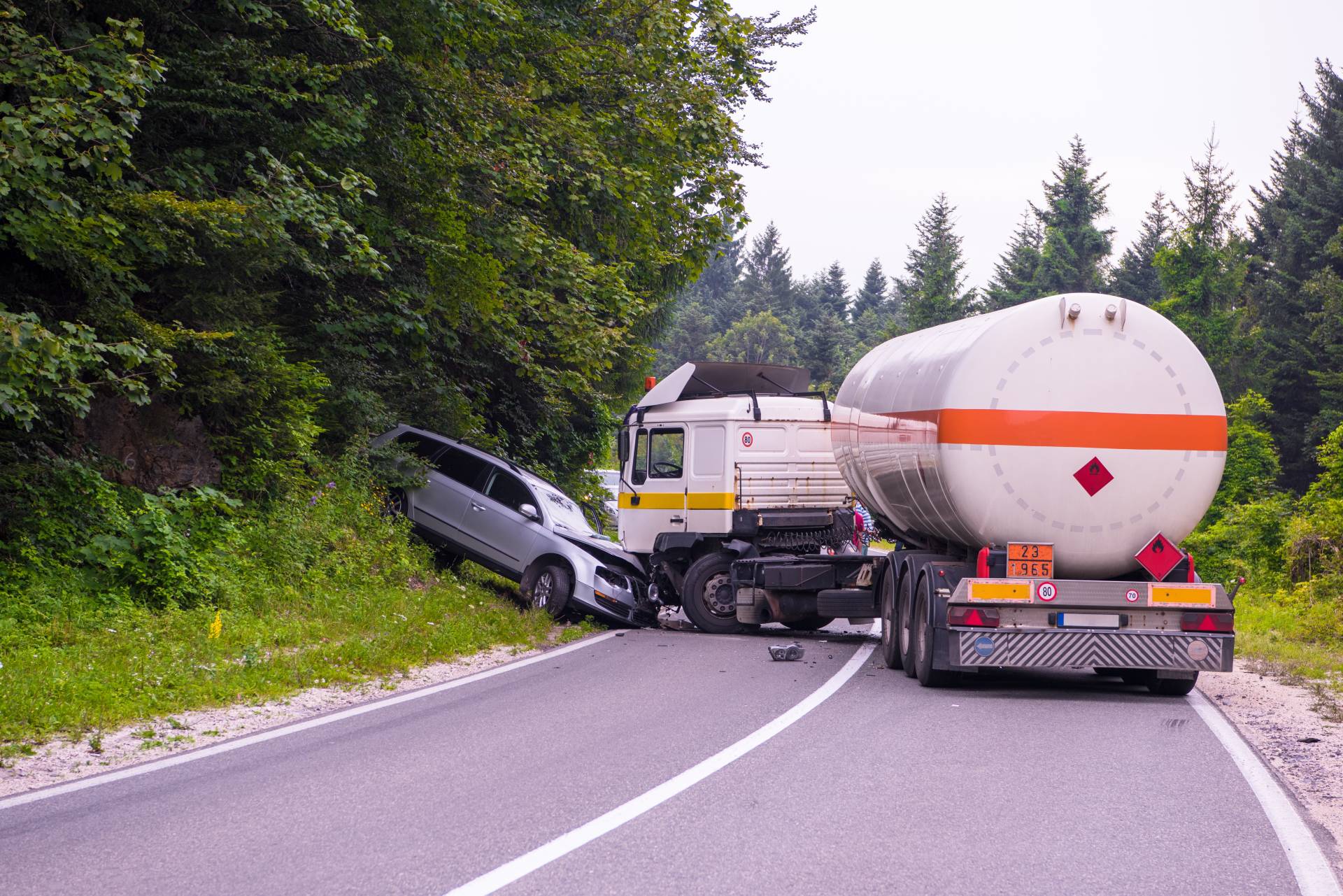Witnessing an accident, and especially being in one with a semi-truck, can be a scary and life-threatening situation.
And it’s not uncommon for them to be fatal.
Semi-trucks often weigh in excess of 10,000 pounds.
That means that injuries suffered from an accident with a tractor-trailer are much more critical than regular car accidents.
According to the National Center for Statistics and Analysis data, in 2017, 4,761 people were killed in crashes involving large trucks in the United States.
But did you know that in more than 80% of accidents involving passenger vehicles and semi-trucks, the accidents are caused by the passenger vehicle?
And to make things worse, The National Highway Transportation Safety Administration says over 72% of those who die in crashes with semi-trucks were in passenger vehicles.
Actions like distracted driving play a role in some of these cases, but numerous accidents occur simply because drivers don’t understand how to maneuver around large vehicles safely.
Sharing the road with semis is a daily task for most of us, but many people don’t understand the limitations of a semi-truck.
Because of this, in the article below, we will discuss several tips that can help you share the road with semi-trucks.
Drive Defensively
Driving defensively is a good idea, no matter where you’re driving.
If you’ve been driving for a while, operating a vehicle probably comes second nature to you.
But even the most skilled drivers have to remain alert at all times, especially around tractor-trailers.
Because semis are much bigger in size and weight, they are much slower to react to avoid collisions.
That means you have to pay extra attention when you’re driving near semi-trucks.
Pay attention to where the vehicles around you are, traffic flow, vehicles changing lanes, and weather conditions.
This allows you to anticipate potential problems and have plenty of time to react if necessary.
Be Cautious
When you’re sharing the road with a tractor-trailer, keep as much distance between you and the truck as possible.
Even if truck drivers can see you, other things can happen on the road with large trucks that the trucker might not be able to react to in time.
We’ve all seen pieces of large truck tires driving down the interstate.
While truck drivers are likely able to continue driving after blowouts, those pieces of tire can be death traps if they blow out and hit a windshield.
Make sure not to get too close to a large truck rear-end or even next to the truck in adverse weather conditions. Your car could easily slide underneath the truck after hitting an ice slick or standing water.

Avoid Blind Spots
The blind spots in a semi-truck are much larger than in passenger vehicles.
The right side of a tractor-trailer is the most dangerous blind spot for a truck driver.
This blind spot can block their view for three or more lanes.
Other blind spots you should be aware of are directly in front of the cab, behind the trailer, and specific zones along the driver’s side.
Spend as little time as possible in these zones to ensure the driver can see you.
Passing
When you pass a truck, you should maintain a safe and steady speed.
Make sure you can see the entire truck in your rear-view mirror before pulling in front of it.
Always pass on the left when possible to maximize your visibility and always keep enough space between your car and the truck when merging back into your lane.
If a truck attempts to pass you, reduce your speed slightly to make it easier for the truck to get around your vehicle.
Distractions
Whether you are driving near a commercial truck, down the road you live on, in a parking lot, or wherever else you might be driving, stay off the phone.
Texting and driving have caused fatal accidents and are comparable to drunk driving.
Sending that text or checking your Facebook feed is not worth the risk involved and can wait until you arrive at your destination.
Reaching for an object that you dropped, trying to get something out of the glove box, or the back seat can cause an accident when you take your eyes off the road and your hands off the wheel.
Stay alert and entirely focused on the road ahead of you and the trucks, if any, that are traveling along the same stretch of road with you.

Always Signal
We’ve already mentioned that trucks require more time to react to motorists stopping, turning, or merging lanes.
That’s why it’s essential to use your turn signal at least five seconds before switching lanes or turning.
Signaling ahead of time allows the truck driver to slow down or move over.
What Should You Do After An Injury With A Semi-Truck?
Safely sharing the road with tractor-trailers is essential.
But If you have been injured in a truck accident, the first thing you need to do is get the medical attention you need.
After that, the bills will begin to arrive, and you will need a plan to cover costs. That’s why finding a truck accident lawyer who can get you the compensation you deserve is the second thing you should do after your accident.
Personal injury lawyers specializing in truck accidents will know how to handle the trucking companies and any other responsible parties. They will hold them accountable.
By getting the personal injury lawyer you need, you can help ensure your physical and financial recovery.
If you need a lawyer after a truck accident, contact the Angell Law Firm today. They will stop at nothing to get you the compensation you deserve.
For more information on this topic, read our blog post “What Should I Do After a Truck Accident?”
Bryce is considered a highly esteemed trial lawyer and a passionate client advocate amongst his peers in the Atlanta legal community. Never afraid to go the extra mile for his clients, Bryce Angell works tirelessly to ensure that each client’s personal injury case gets the attention that it deserves.



